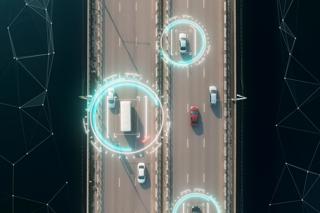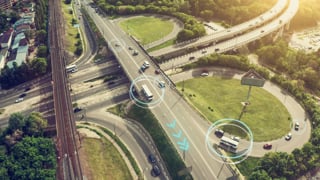Urban fleet operators are looking to better use of data to help with the growing complexity of switching to electric vehicles (EVs), according to results from Project Sliced.
Led by Cenex and Flexible Power Systems (FPS), and funded by Innovate UK, Project Sliced (Smarter Logistics Through In-Vehicle, City, and Energy Data) involved seven major UK fleets managing more than 15,000 vehicles.
Cenex put out a call back in March for more fleets to share data as part of the project.
All are at various stages of transitioning to electric vehicles (EVs) and face growing logistical and infrastructure-related pressures.
Lack of flexibility for real-time decision making and routing
Although most fleets already collect data for route planning, driver behaviour and compliance, the report found that real-time data is still underused.
Once vehicles are on the road, operators struggle to adapt to unexpected changes.
Fleets said that their current systems often lack the flexibility needed for live rerouting or real-time decision making.
There is strong demand for smarter tools that can support real-time routing, predictive maintenance and more efficient dispatching, it found.
Fleets want platforms that can factor in live traffic, infrastructure issues and road closures to improve journey reliability and reduce delays.
EV charging is another significant concern. Many fleets struggle with scheduling depot charging and accessing public charge points, the report finds.
This is particularly difficult for drivers who cannot charge vehicles at home.
Public charging is also much more expensive than depot charging, with fleets reporting that costs are between five or even 10 times more.
Some fleets are experimenting with shared infrastructure, but current arrangements are mostly informal and manually managed.
Allstar and Co Charger recently announced a cooperation to work more formally with fleets to create solutions for drivers that don’t have access to off-street charging.
Operators also suggested using driver feedback to identify recurring issues on the road, such as poor junction design or consistent congestion.
Structured reporting of these problems could help local authorities improve infrastructure and traffic management, the report found.
Despite interest in smarter systems, operators face several barriers.
Fleets that added their feedback said the current technology landscape is fragmented, with too many disconnected devices and platforms. This makes systems expensive and difficult to manage.
Actionable insights, not just raw data
Fleets said they want systems that deliver actionable insights, not just raw data. These insights also need to be integrated across operations without requiring extensive manual analysis, according to the project's findings.
Many fleets also lack the time and resources to evaluate new technologies, even when potential benefits are clear.
Fleets said that valuable data often goes unused simply because teams don’t have the capacity to process it effectively.
City-level challenges further complicate operations. Congestion is a consistent problem, it found. One fleet reported that nearly a third of deliveries are late due to traffic.
Routing systems are often inaccurate for large vehicles, failing to account for restricted access roads or low bridges. As a result, most operators do not allow drivers to leave their planned routes.
Access restrictions, such as time and noise limits, concentrate deliveries during peak periods and force fleets to expand in order to meet service demands.
Physical constraints like narrow roads and limited parking also extend routes and increase the risk of collisions.
Additional difficulties for emergency service fleets
Emergency service fleets face additional difficulties, according to the report.
Drivers often encounter unpredictable responses from other road users during bluelight runs, slowing response times. Roadworks and traffic signals further contribute to delays.
Most incidents occur at low speeds or at junctions. Operators believe that smarter dispatch tools and live route adjustments could reduce these risks.
Power upgrades at depots
The transition to electric vehicles adds further complexity, suggests the report. Many depots already need power upgrades, even when only a few EVs are in use.
Where home charging is not possible, it found that productivity suffers.
Some fleets are beginning to share infrastructure, but most arrangements are informal and not supported by scheduling or billing systems.
Emergency fleets report similar infrastructure challenges and call for more coordinated investment in depot upgrades.
The Project Sliced report concluded that smarter, integrated use of data is essential for fleets to operate effectively in increasingly complex urban environments.
Michael Ayres, FPS managing director, said: “The road to sustainable fleet operations in cities is a connected one.
“Fleets and cities have access to more data than ever before.
“If harnessed correctly, this data can unlock cost and risk-reducing decisions in planning and real-time operations.
“There’s a risk, though, of fleets and cities being overwhelmed by a deluge of data that becomes worthless.
“That’s why automated systems can produce so much value, they ingest this data and generate insights and beneficial automated actions in the real world.”
Read the full Project Sliced report for the full results.






















Login to comment
Comments
No comments have been made yet.